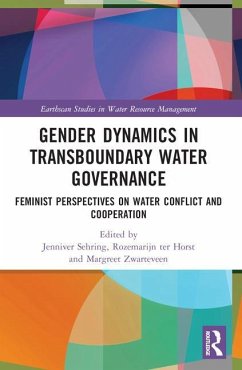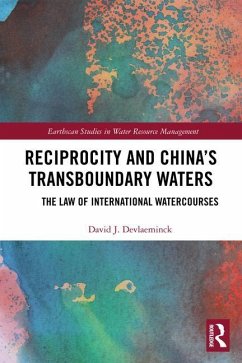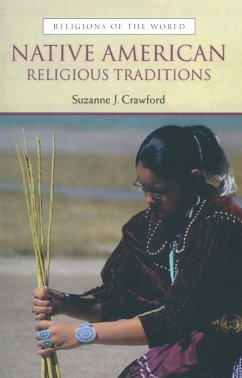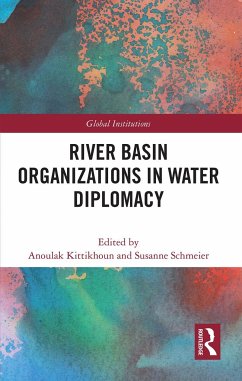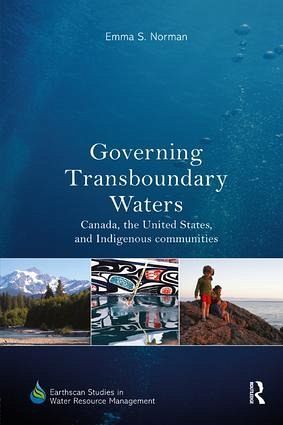
Governing Transboundary Waters
Canada, the United States, and Indigenous Communities
Versandkostenfrei!
Versandfertig in 6-10 Tagen
56,99 €
inkl. MwSt.
Weitere Ausgaben:

PAYBACK Punkte
28 °P sammeln!
Winner of the Political Geography Specialty Group's 2015 Julian Minghi Distinguished Book Award!With almost the entire world's water basins crossing political borders of some kind, understanding how to cooperate with one's neighbor is of global relevance. For Indigenous communities, whose traditional homelands may predate and challenge the current borders, and whose relationship to water sources are linked to the protection of traditional lifeways (or 'ways of life'), transboundary water governance is deeply political.This book explores the nuances of transboundary water governance through an ...
Winner of the Political Geography Specialty Group's 2015 Julian Minghi Distinguished Book Award!
With almost the entire world's water basins crossing political borders of some kind, understanding how to cooperate with one's neighbor is of global relevance. For Indigenous communities, whose traditional homelands may predate and challenge the current borders, and whose relationship to water sources are linked to the protection of traditional lifeways (or 'ways of life'), transboundary water governance is deeply political.
This book explores the nuances of transboundary water governance through an in-depth examination of the Canada-US border, with an emphasis on the leadership of Indigenous actors (First Nations and Native Americans). The inclusion of this "third sovereign" in the discussion of Canada-U.S. relations provides an important avenue to challenge borders as fixed, both in terms of natural resource governance and citizenship, and highlights the role ofnon-state actors in charting new territory in water governance. The volume widens the conversation to provide a rich analysis of the cultural politics of transboundary water governance.
In this context, the book explores the issue of what makes a good up-stream neighbor and analyzes the rescaling of transboundary water governance. Through narrative, the book explores how these governance mechanisms are linked to wider issues of environmental justice, decolonization, and self-determination. To highlight the changing patterns of water governance, it focuses on six case studies that grapple with transboundary water issues at different scales and with different constructions of border politics, from the Pacific coastline to the Great Lakes.
With almost the entire world's water basins crossing political borders of some kind, understanding how to cooperate with one's neighbor is of global relevance. For Indigenous communities, whose traditional homelands may predate and challenge the current borders, and whose relationship to water sources are linked to the protection of traditional lifeways (or 'ways of life'), transboundary water governance is deeply political.
This book explores the nuances of transboundary water governance through an in-depth examination of the Canada-US border, with an emphasis on the leadership of Indigenous actors (First Nations and Native Americans). The inclusion of this "third sovereign" in the discussion of Canada-U.S. relations provides an important avenue to challenge borders as fixed, both in terms of natural resource governance and citizenship, and highlights the role ofnon-state actors in charting new territory in water governance. The volume widens the conversation to provide a rich analysis of the cultural politics of transboundary water governance.
In this context, the book explores the issue of what makes a good up-stream neighbor and analyzes the rescaling of transboundary water governance. Through narrative, the book explores how these governance mechanisms are linked to wider issues of environmental justice, decolonization, and self-determination. To highlight the changing patterns of water governance, it focuses on six case studies that grapple with transboundary water issues at different scales and with different constructions of border politics, from the Pacific coastline to the Great Lakes.





